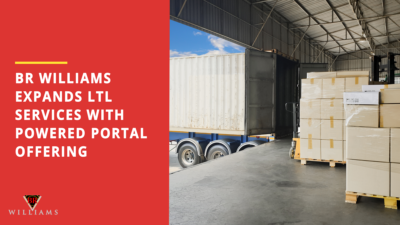
Reduce Supply Chain Costs. Save money. Meet buyer demands. Grow your business.
Sure, those all sound great. But how do businesses find practical solutions to cost savings in these areas?
With warehouse management systems in the supply chain, businesses go from struggling with consumer demands and hidden bottlenecks to flourishing in sales and expanding with new business strategies. This helpful software and a team who can implement it for you can quickly scale your business without expensive investments or unrealistic standards, from transparent inventory control and management to customer service tracking and company productivity reports.
What is a warehouse management system?
To understand which warehouse management system is right for your supply chain strategy, you need to understand what a warehouse management system is. A warehouse management system (WMS) is a software application that helps manage the operations of a warehouse or distribution center (DC).
These applications often offer assistance with receiving, put-away, stock locating, inventory management, cycle counting, task interleaving, wave planning, order allocation, order picking, replenishment, packing, shipping, labor management, and automating materials-handling equipment interfaces, and other aspects of supply chain management.
Advantages of warehousing in supply chain management
There are numerous benefits of warehouse management systems that can impact so many aspects of your business – not just physical products in the warehouses or how inventory gets from point A to point B.
In addition to the transparent inventory control and management, high customer satisfaction rates, and company productivity metrics, your warehouse management system provides:
- Inventory visibility
- Opportunity for strategic planning
- Countless technology integrations
- Ability to focus on growth
When you work with the right 3PL partner and implement a WMS that fits your needs, the opportunities for improvement and growth are endless.
1. Inventory Visibility
Warehouse management systems optimize warehouse flow by analyzing the best use of floor space based on the task and material characteristics. In the WMS implementations, space and floor plan analysis is used to determine how space should be best used and provides opportunities for reducing waste – waste of premium floor space and waste of time for locating products.
This will also lessen potential inventory costs resulting from excessive material movement, time-consuming placement, and retrieval. A warehouse can lower its operating expenses by considering the best locations to store products and materials or equipment.
2. Strategic Planning
Planning is essential for any business operation, and when you can strategize your supply chain solutions, more efficient processes get discovered. A WMS can also help your fulfillment partner process orders faster and keep track of what is selling well. When you can see which products are your most popular ones, you can find new ways to optimize the way you set up the warehouse for better efficiency.
By strategically planning where materials should go and how to stock your warehouse space, you can increase how quickly products get picked, packaged, and even loaded on docks or trucks for delivery. You can also reduce unneeded inventory costs, unnecessary product storage, and you can circumvent bottlenecks and delays across the entire process.
3. Technology Integration
Is information flow a major challenge for your company? This bottleneck can cause much larger issues for many businesses than just transparency and visibility for employees or partners. This is where technology integrations can significantly help.
Integrated software solutions remove problematic hiccups and allow seamless sharing of information. This creates a big-picture view of the supply chain from end to end and prevents your business from getting caught up in the little details. Thanks to improved access to data, supply chain leaders have the information they need, in context, to make more informed decisions.
4. Ability to focus on growth
Warehouse management that prioritizes fast, efficient service without sacrificing quality can help any business unlock new levels of growth and success. This ultimately helps companies build long-term relationships with partners and customers, leading to more sales, better customer retention, and higher satisfaction rates. When you can see the big picture, focusing on growth and roadmaps for scaling your operations become clearer.
Warehouse management can help many different types of companies maximize profitability and reduce overall error. Having an experienced partner you can trust is crucial for eliminating the potential obstacles to getting started with a new management system. BR Williams helps you navigate the challenges of order fulfillment and implement the most useful warehouse management system for your company.
Reliable Suppliers, You Can Trust
If your team is looking to scale back costs while improving your current solutions and processes, BR Williams tailors solutions to meet your business needs. We aim to meet supply chain demands without breaking your bank because growth brings new – and bigger – opportunities and responsibilities.
Our team is here to help. Learn more or get a free quote today!
About BR Williams Trucking & Logistics
BR Williams, a family-owned Trucking, Warehousing, Fulfillment & Logistics Company has been serving customers since 1958. We specialize in removing the supply chain frustrations our customers have by developing custom-made solutions. We offer nationwide transportation services through our fleet and logistics division. Our multiple fulfillment and distribution warehouses in Alabama span over 1.7 million square feet. Our core values are HONESTY, INTEGRITY, SERVICE. We still serve our first customer that was established in 1958.
To discuss your supply chain needs, please contact us online or call (800) 523-7963



